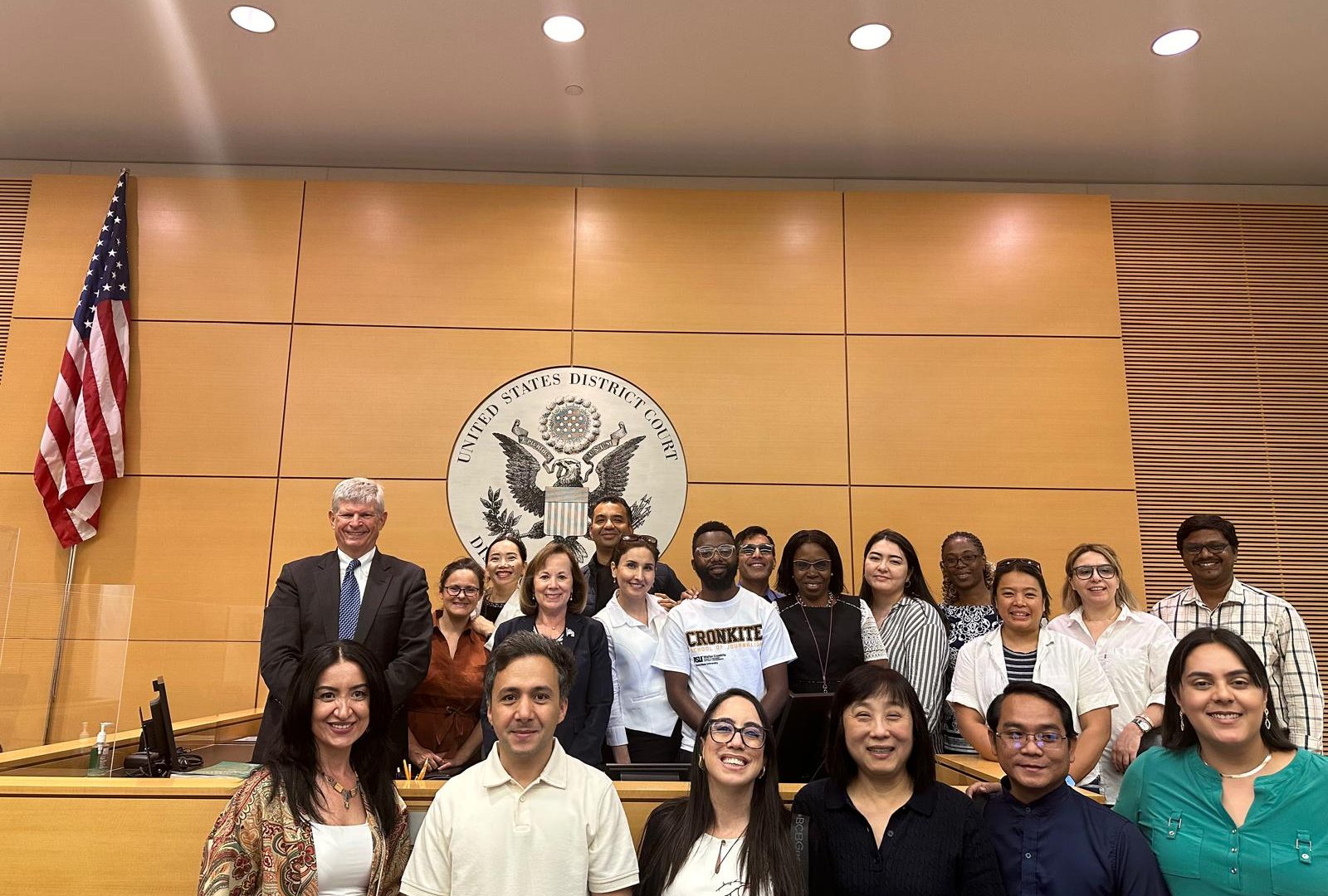All eyes are on Phoenix. This unique city represents the idiosyncrasies of Arizona and at the same time embodies what the future may look like for the entire United States. Despite rising temperatures, Phoenix has captured the hearts of the 2024 SUSI scholars.
Before I arrived at this young city, I wondered how could it thrive in such weather. Now, after 18 days learning about its ties to different traditions while witnessing its openness to technology and innovation, I’ve discovered that the answer lies in its people, who are committed to building a home in the middle of the desert.
What would the neighbors think?
Brahm Resnik and Heidi Renpenning were born in Canada and Mexico, America’s only neighboring countries. As naturalized citizens and seasoned journalists, both Mr. Resnik and Ms. Renpenning shared with the SUSI scholars their perspectives of the state of civic life in Phoenix.
Mr. Resnik, a political journalist at 12 News, has witnessed the changing political landscape. As the media industry continues to struggle, polarization is on the rise and civility is under threat. Journalists today, he says, need thicker skin than ever.
This is an election year and the stakes are high. In Arizona, the pendulum can swing rapidly in the opposite direction and then come back. A true laboratory for the democracy’s new era.
An unconditional love for his adoptive country seems to drive Mr. Resnik’s passion to continue doing his job. After all, without good journalism and good journalists, democracy will weaken.
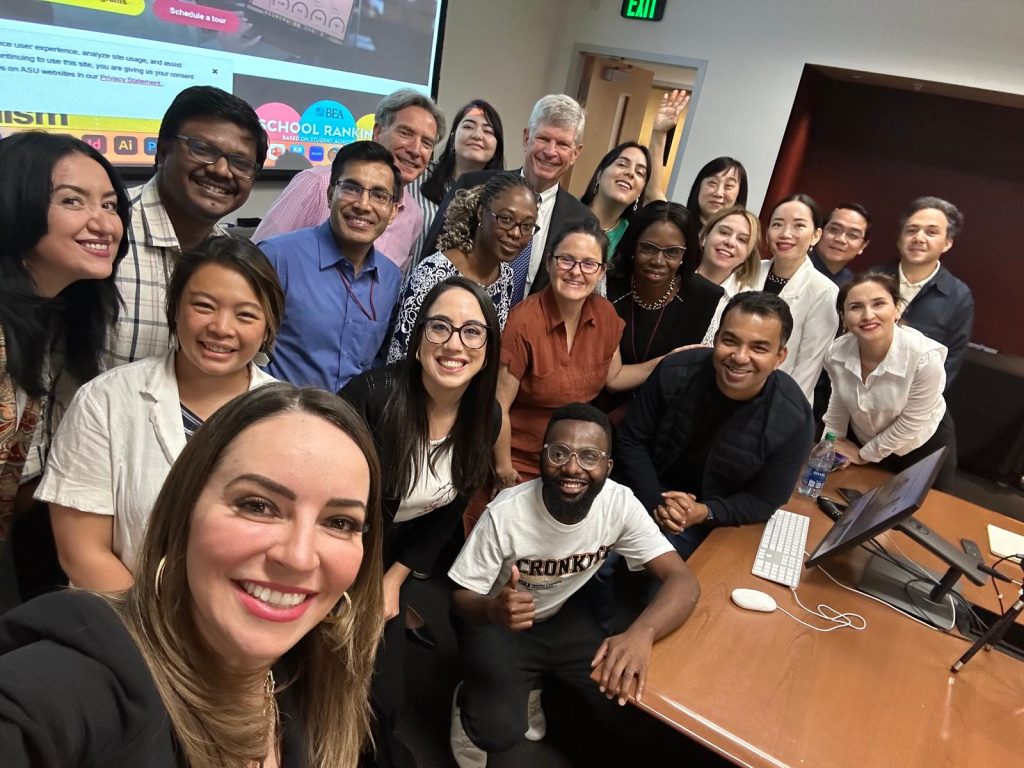
Sadly, I was not surprised when Ms. Renpenning started to tell us how hard it is to be a journalist in Mexico. In my home country, practicing journalism may well cost you your life. Ms. Renpenning thought it was all behind her, and one of the reasons she came to the United States was to be able to continue doing what she excels at: good journalism that serves the local community. And years after leaving her birth country behind, she’s beginning to worry again. The erosion of trust and the increasing hostility towards dissent in a hyper partisan environment makes her more cautious. Still, she’s committed and she won’t back down.
When I first arrived at Phoenix, I was surprised to see all the traces of what I consider a bilingual city. I kept hearing Spanish speakers everywhere I went. In most places I can read signs and hear announcements both in English and Spanish. So that’s why it made sense to me that Ms. Renpenning’s Spanish newscast has the highest ratings in Arizona, even considering the English language TV stations.
Many of her viewers are immigrants, but some of them are first generation Mexican-Americans with evolving values that differ from their immigrant parents. She said that about 80% of her audience is actually bilingual, but they still want to watch newscasts in Spanish and stay connected to their roots. As the largest minority group in Arizona, Ms. Renpenning’s audience members represent the future of a multicultural identity in the changing demographics of the United States.
Who are we to judge?
It’s not easy to make tough and unpopular decisions, but someone needs to do the job. United States district judges of the District of Arizona, Susan Bolton and John Tuchi, offered the SUSI scholars a glimpse into the American federal judiciary.
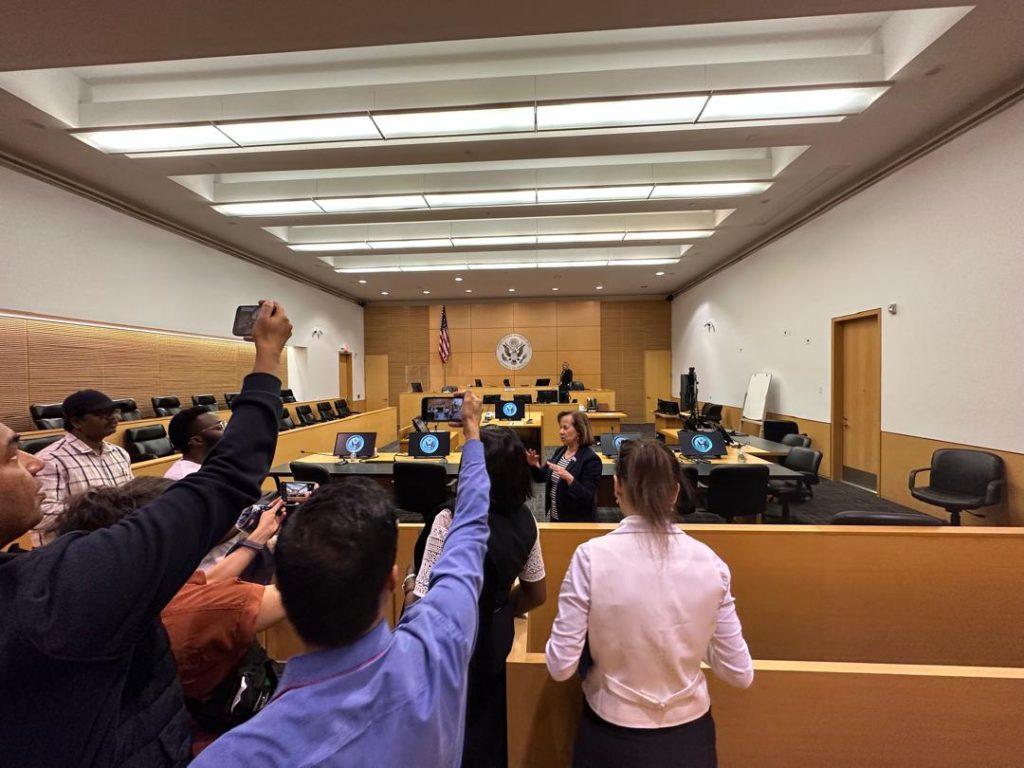
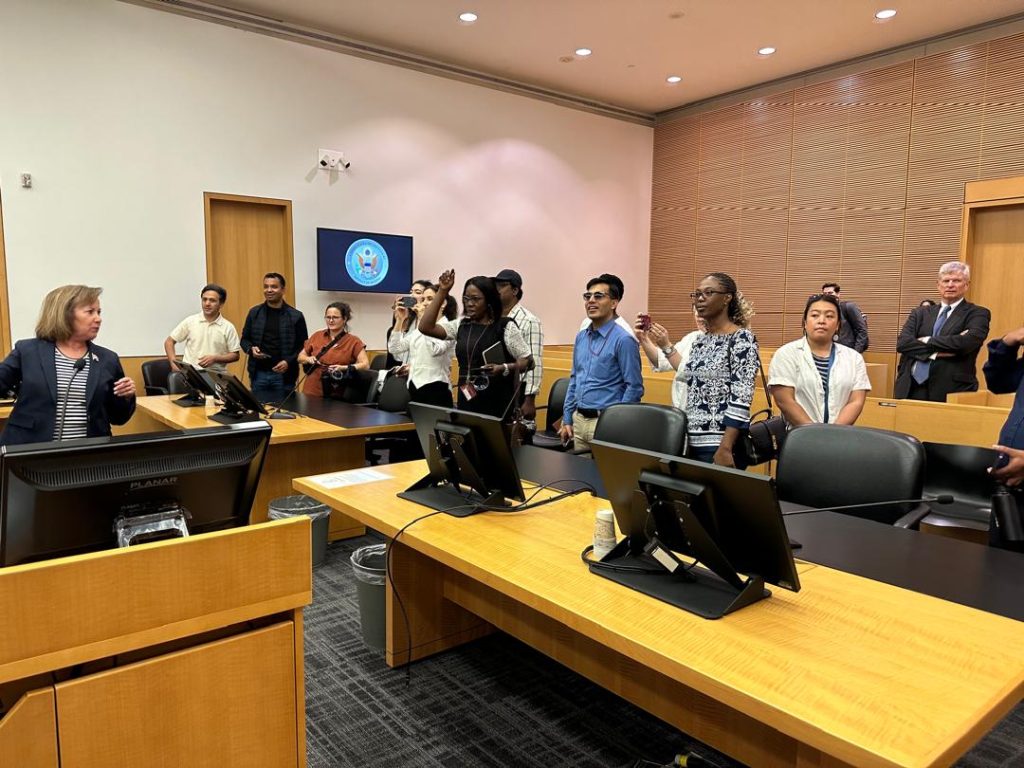
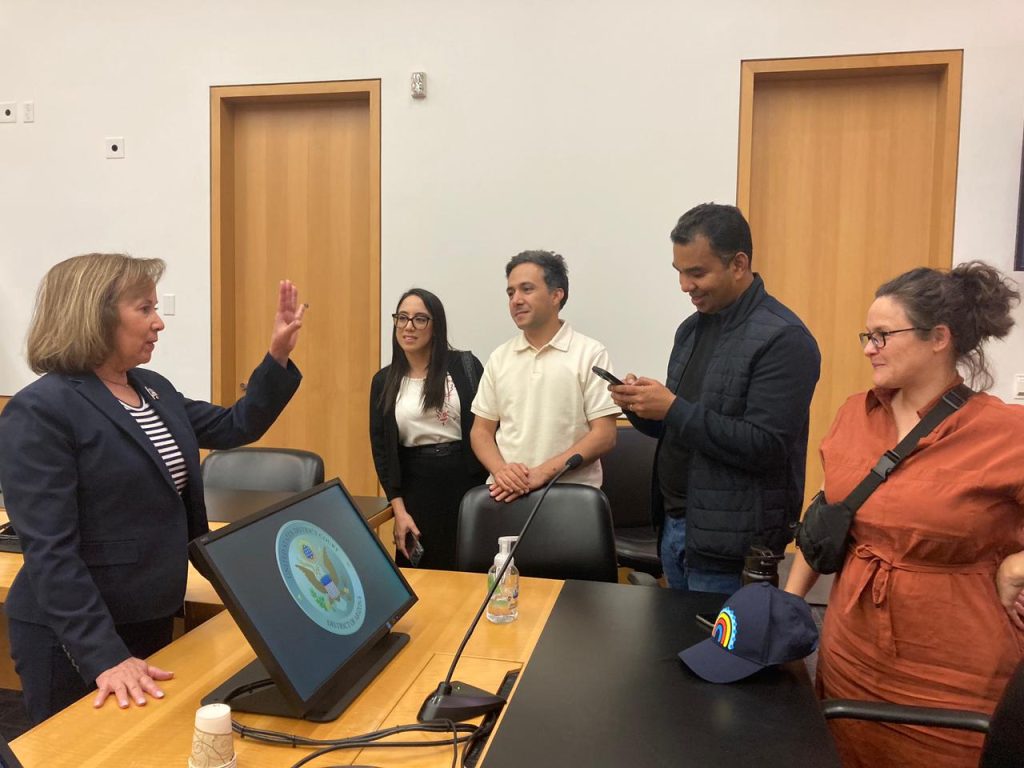
(PhotoS by Asel Sooronbaeva)
As journalists and media professionals, sometimes we are unaware that judges and judiciary workers are also subject to public scrutiny and, in the worst cases, vicious expressions of harassment when their rulings are not welcomed. They also need thick skin and a strong commitment to justice and the greater good, because their decisions bear certain costs.
Since I left my country to participate in the SUSI Scholars program, one of the topics that keeps making headlines in Mexico is the discussion of a possible reform to our federal judiciary. One of the main points is to make the federal judges and Supreme Court justices be elected by popular vote. I asked the judges their perspective on this proposition and I was surprised to learn that popular vote is the way in which some state judges are elected in the United States, while the federal judges and the Supreme Court justices are appointed for life by the President.
This shows the variety of perspectives within the country. But still, good journalism and efficient judicial powers are inseparable pillars of democracy. As stewards of truth and accountability, we must safeguard these institutions, even amidst differing viewpoints, for the collective good of society.
Tour por la redacción (Tour to the newsroom)
Some of the scholars took the opportunity to attend an improvised tour of the Univision Newsroom thanks to the kindness of Ms. Renpenning. One of the things that surprised me the most was to learn how deeply connected to their audiences they are, how well they know them and how civic engagement is an essential part of the journalism they do.
When I did my master’s thesis, I wanted to find out if, due to their participatory nature, online news outlets were the place to find practices of civic journalism in Mexico. It never occurred to me that I would see such a thing in what in many other ways is a traditional TV station.
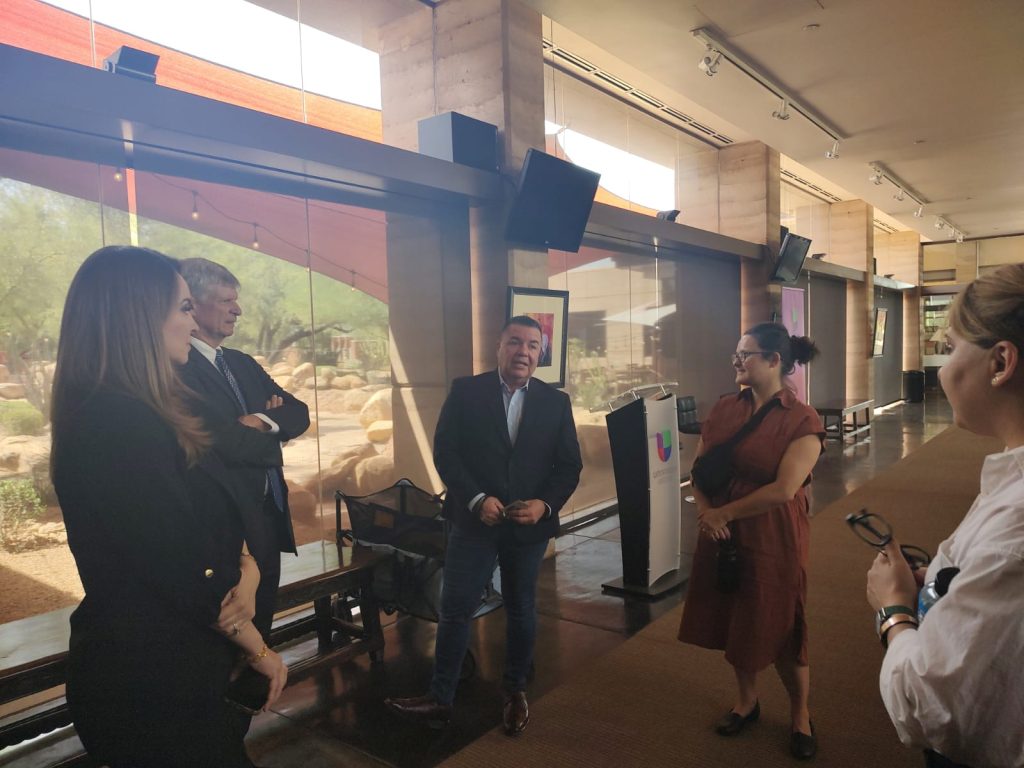
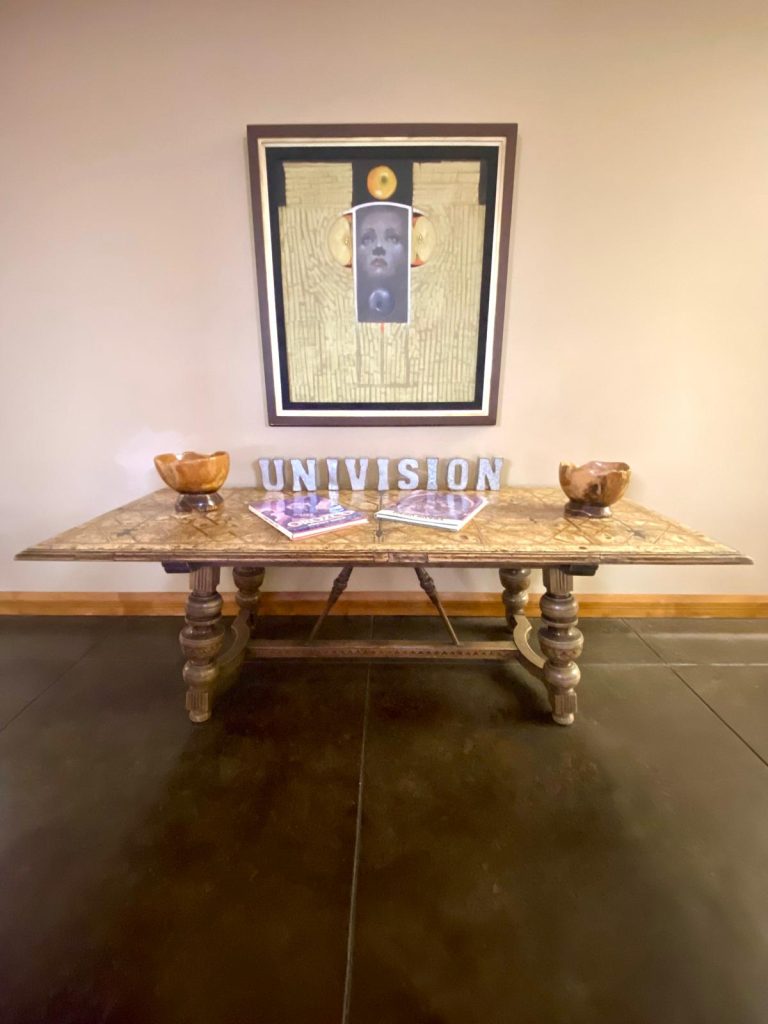
Univision’s Phoenix newsroom
One of the things that the Univision journalists do that proves their commitment to their audience is focusing their coverage on issues particularly important to the Hispanic and especially the Mexican-American population, like full in-depth coverage of the border and immigration, political and social information about Mexico and other Latin American countries, coverage about health and educational issues that are sometimes ignored by the English language media. Every day is a busy day in the newsroom, as news director Juan Villa explained in his detailed breakdown of their daily workload.
But TV journalism is not the only thing they do at Univision. Geraldo Higginson, director for Community Relations and Public Affairs, explained the station’s efforts to foster civic engagement through voter education and community events.
In my view, Univision’s profound connection with the Hispanic community stands as a benchmark for effective media engagement —a beacon of hope for the future of local journalism.
